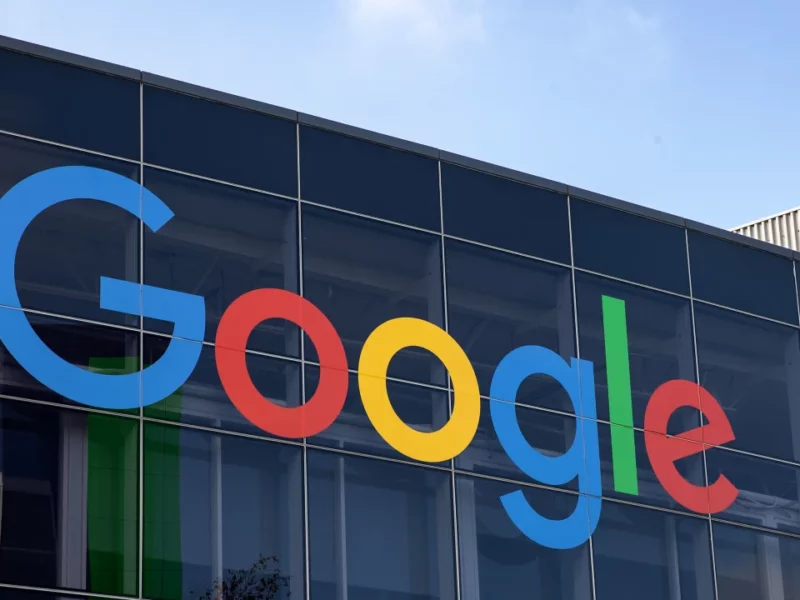Google is gearing up for a legal face-off scheduled for Tuesday as it faces allegations of antitrust violations in its extensive search business. This marks the beginning of a highly anticipated legal battle that could potentially reshape one of the internet’s most dominant platforms.
The trial, commencing in Washington this week before a federal judge, represents the culmination of two ongoing lawsuits against Google that originated during the Trump administration. Legal experts are characterizing these actions as the most significant monopolization case in the United States since the government’s confrontation with Microsoft in the 1990s.
In separate complaints filed in 2020, both the Justice Department and numerous states accused Google of exploiting its dominant position in online search by allegedly stifling competition through agreements with wireless carriers and smartphone manufacturers, which effectively made Google Search the default or exclusive choice on products used by millions of consumers. These complaints eventually merged into a single case.
Google has consistently asserted that it competes based on the quality of its services, contending that consumers choose its tools because they are superior, rather than because it engaged in illegal practices to suppress competition. Google’s search business alone generated over half of Alphabet, its parent company’s, $283 billion in revenue and $76 billion in net income in 2022. This search business has been instrumental in propelling the company’s market capitalization to over $1.7 trillion.
Now, Google is preparing to defend itself in a multiweek trial that has the potential to alter how it distributes its search engine to users. This case is anticipated to include testimony from notable witnesses, including former Google and Samsung employees, as well as executives from Apple, such as senior vice president Eddy Cue. It represents the first of several legal challenges targeting Google’s extensive economic influence that is heading to trial, serving as a test of the courts’ willingness to rein in major tech platforms.
Kent Walker, Google’s President of Global Affairs, commented on the case, stating, “This is a case that looks backward at a time when there is unprecedented innovation, including advancements in AI, new applications, and new services, all of which are fostering more competition and choices for consumers than ever before. People use Google not because they have to but because they want to. It’s simple to switch your default search engine — we’re far beyond the days of dial-up internet and CD-ROMs.”
The trial could also serve as an indicator of the Biden administration’s more proactive stance on antitrust matters.

In Washington, DC, on January 24, U.S. Attorney General Merrick Garland addressed a news conference regarding a fresh antitrust lawsuit against Google at the Justice Department. This lawsuit, filed by the Justice Department and several states, including California, New York, Colorado, and Virginia, alleges that Google has monopolized the online advertising market. (Image Source: Anna Moneymaker/Getty Images)
In its initial complaint, the U.S. government made several allegations, including the claim that Google pays substantial sums, amounting to billions of dollars annually, to device manufacturers like Apple, LG, Motorola, and Samsung, as well as browser developers such as Mozilla and Opera. These payments are made to secure Google as the default search engine and, in many cases, to prevent these companies from collaborating with Google’s competitors.
As a result of these practices, the complaint contends that Google effectively exerts control over search distribution channels that account for approximately 80 percent of all general search queries in the United States.
Furthermore, the lawsuit asserts that Google’s dealings with device manufacturers through its Android operating system are anticompetitive. These deals require smartphone companies to pre-install various Google-owned applications, such as Gmail, Chrome, or Maps.
When the lawsuit was initially filed, U.S. antitrust officials did not rule out the possibility of breaking up Google, expressing concerns that Google’s conduct could pose a threat to future innovation or hinder the emergence of a successor to Google.
Separately, a coalition of states, led by Colorado, brought forth additional allegations against Google, contending that Google’s arrangement of its search results page harms competition by favoring its own applications and services over content from third-party websites, links, reviews, and other sources.
However, Judge Amit Mehta, presiding over the case in the U.S. District Court for the District of Columbia, dismissed these claims in a ruling last month. This ruling narrowed down the scope of allegations that Google needs to defend, with Judge Mehta stating that the states had not presented sufficient evidence to warrant a trial on whether Google’s search result rankings constituted anticompetitive behavior.
Despite this ruling, the trial marks a significant milestone in the U.S. government’s efforts to challenge Google. Judge Mehta has noted that Google’s dominant position as the default search engine on multiple browsers is a highly disputed matter, and the trial will determine whether this position amounts to exclusionary conduct in the actual marketplace.
Furthermore, in January, the Biden administration initiated another antitrust lawsuit against Google, specifically targeting the company’s advertising technology business. This lawsuit accuses Google of maintaining an illegal monopoly in that domain and is currently in its early stages in the U.S. District Court for the Eastern District of Virginia.











